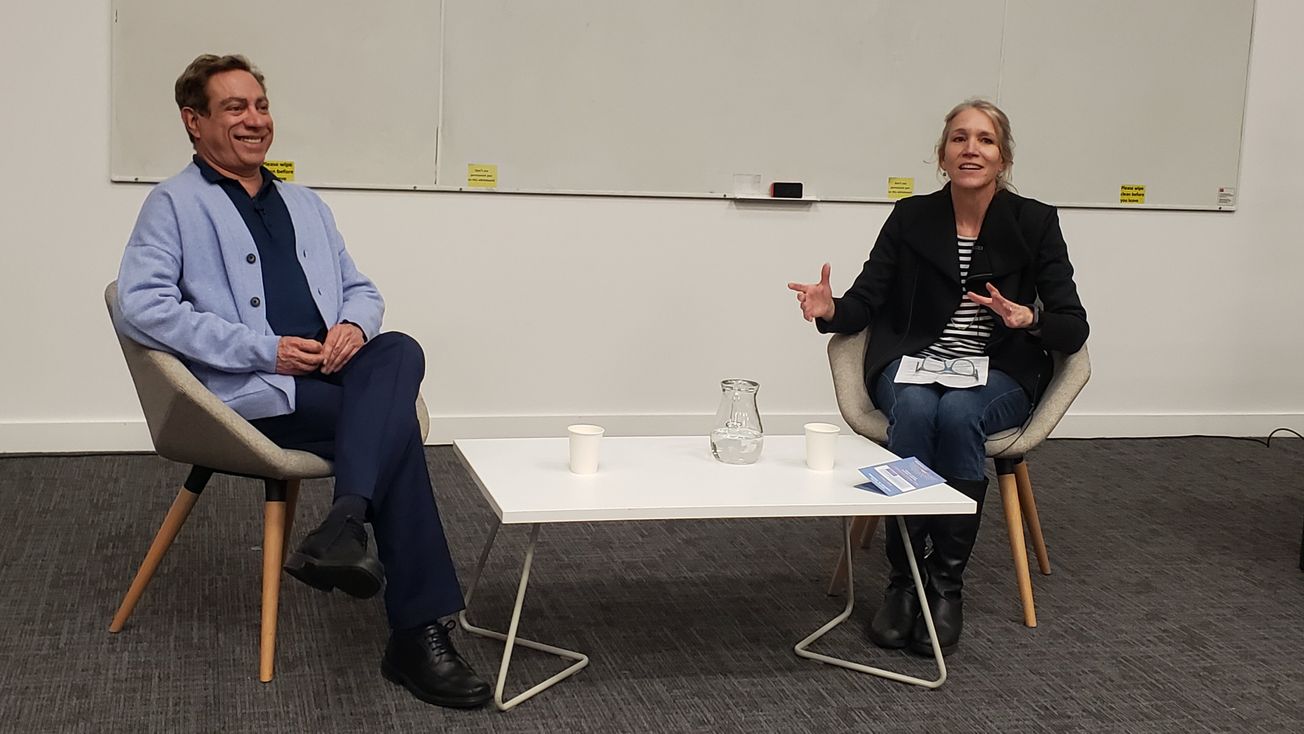By Olivia Loughran, Second Year English
Epigram celebrates the academic achievements of Dr Lesel Dawson, Associate Professor in Literature and Culture at the University of Bristol. Lesel shares her experiences as a woman working in academia, researching grief, and offers her advice for aspiring academics.
Lesel’s academic interests centre on the history of psychology and gender. She specialises in the history of emotions and has written on love, shame, trauma and revenge. Literature is one way of exploring how people live their lives in different historical periods and cultures, Lesel tells Epigram, and this has inspired much of her work, including her book Lovesickness and Gender in Early Modern Literature (2008). Had she not pursued academia, she would’ve been a therapist.
Grief is an emotional response we will, inevitably, all experience. It is the focus of much of Lesel’s current research. Her project ‘Creative Grieving’ examines the role that imagination plays in bereavement and how creative activities can help us express our feelings and feel connected to those we love who have died. As part of this project, Lesel is making two collaborative animated films on children’s bereavement and creativity, alongside Julia Samuel MBE, Gary Andrews and Victoria Tolchard.
Lesel’s grief research initially focused on early modern literature but, through her collaborative projects with artists and charities, has shifted to focus on contemporary writing and art, and psychological theories of grief.
Lesel is the Arts and Culture Lead of Good Grief Festival, a collection of over 150 community engagement events which aim to open up conversations about death and grief. In partnership with the festival’s founder, Lucy Selman, Good Grief organises workshops and talks from varied speakers in hopes of destigmatising grief. Previous speakers include David Baddiel, Mel Giedroyc, Ruby Wax and Michael Rosen.
It was a pleasure to welcome leading grief expert @IamDavidKessler to the University on Friday.
— University of Bristol (@BristolUni) March 27, 2023
David joined @LeselDawson for @GoodGriefFest's first hybrid event to discuss the topic of hope and meaning in grief. pic.twitter.com/RiEIMu8qcQ
Lesel explains, ‘I think people who are grieving often feel overwhelmed. It’s such an intense process and I don't think people are ready for how overpowering it is.’ Lost Property (2022), a fiction film created in collaboration with Jimmy Hay, tries to capture the lived experience of grief in film, and considers how creativity impacts memory.
Completing an undergraduate degree at UCLA, followed by an MPhil and a PhD at the University of Oxford, Lesel has been teaching at the University of Bristol since 2000. While Lesel describes her path into the higher education sector as a ‘series of choices to keep studying to avoid other jobs,’ she attributes her cumulation of academic achievements to a genuine passion for reading, drama and early modern studies. ‘Each time I finished a degree I didn't feel like I was quite done.’
Lesel reflects that when she first joined the University, the English Department had only four women. In those early days, she sometimes felt insecure and self-conscious, and longed for more female colleagues. Lesel remarks, ‘my confidence has grown over the years and it is great to consistently be in meetings where there's as many women as men, if not more.’
Thanks to everyone who came to @jimmy_m_hay & my screening of LOST PROPERTY & NOTHING ECHOES HERE! It was great to reflect on the collaborative process & relationship between grief & creativity. Thanks also to @UoBrisMedHums @HelloBrigstow @UoBrisEnglish for supporting the event. pic.twitter.com/UvaTwMZyoB
— Lesel Dawson (@LeselDawson) February 8, 2023
Supportive, interesting and inspiring are attributes shared by the women that Lesel looks up to. Early in her career, Elaine Showalter’s iconic study The Female Malady: Women, Madness and English Culture, 1830-1980 (1985) inspired her to establish her research passions in the coinciding fields of gender, medical history and emotion. Natsu Hattori, who supervised Lesel’s MA thesis, remains an influential role model for both her intelligence and generosity as a mentor.
Lesel advises that budding academics hoping to pursue a career in the field should lean into their strengths and embrace what comes naturally to them. She observes that we sometimes undervalue the things that come easily to us, perceiving other’s strengths as somehow more valuable than our own. The passion for and interest in research should be the main motivation when pursuing a project, she tells Epigram: ‘with research, you're on your own for a lot of the time with the books, so you should do a project that you're passionate about and enjoy.’
Women in Academia: In Conversation with Dr Emma Parker
Women in Academia: In Conversation with Dr Leighan Renaud
When asked about the highlight of her career, I expect Lesel to share one of her many momentous accolades, like publishing her book Revenge and Gender in Classical, Medieval, and Renaissance Literature (2018), or joining the Board of Directors for 'Shakespeare at the Tobacco Factory'. To my surprise, she jokes that receiving the first copy of her books is ‘in some ways, always a let-down because it always looks so tiny, compared with the years of work you’ve put in.’
Instead, the ‘everyday highlights’ are what stand out to her as memorable career moments. ‘Teaching an amazing seminar where everybody is talking and everybody's engaged and enthusiastic and you're all learning from one another. I think when I walk out of a seminar like that, I feel really happy and enthusiastic, and I love my job.’
Featured Image: Lucy Selman / Good Grief Festival via Twitter
Who in the academic community inspires you?








